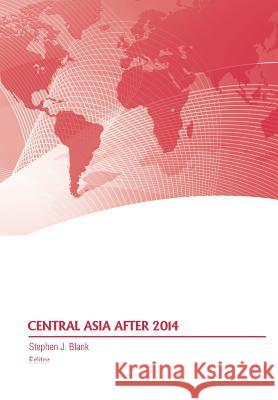Central Asia After 2014 » książka
Central Asia After 2014
ISBN-13: 9781782665854 / Angielski / Miękka / 2013 / 134 str.
As NATO and the United States proceed to withdraw their forces from Afghanistan, the inherent and preexisting geopolitical, security, and strategic challenges in Central Asia become ever more apparent. The rivalry among the great powers: the United States, China, Russia, India, and others to a lesser degree, are all becoming increasingly more visible as a key factor that will shape this region after the allied withdrawal from Afghanistan. The papers collected here, presented at SSI's annual conference on Russia in 2012, go far to explaining what the agenda for that rivalry is and how it is likely to influence regional trends after 2013. Therefore, these papers provide a vital set of insights into an increasingly critical area of international politics and security, especially as it is clear that the United States is reducing, but not totally withdrawing, its military establishment in Afghanistan and is seeking to consolidate long-term relationships with Central Asian states. Accordingly, these papers provide assessments of Sino-Russian rivalry, the U.S.-Russian rivalry, and a neglected but critical topic-Chinese military capability for action in Central Asia. All of these issues are essential for any informed analysis of the future of Central Asian security, as well as relations among the great powers in Central Asia.
As NATO and the United States proceed to withdraw their forces from Afghanistan, the inherent and preexisting geopolitical, security, and strategic challenges in Central Asia become ever more apparent. The rivalry among the great powers: the United States, China, Russia, India, and others to a lesser degree, are all becoming increasingly more visible as a key factor that will shape this region after the allied withdrawal from Afghanistan. The papers collected here, presented at SSIs annual conference on Russia in 2012, go far to explaining what the agenda for that rivalry is and how it is likely to influence regional trends after 2013. Therefore, these papers provide a vital set of insights into an increasingly critical area of international politics and security, especially as it is clear that the United States is reducing, but not totally withdrawing, its military establishment in Afghanistan and is seeking to consolidate long-term relationships with Central Asian states. Accordingly, these papers provide assessments of Sino-Russian rivalry, the U.S.-Russian rivalry, and a neglected but critical topic-Chinese military capability for action in Central Asia. All of these issues are essential for any informed analysis of the future of Central Asian security, as well as relations among the great powers in Central Asia.











